Delicate Shuttle, Henna Asikainen, 2018, Image Credit: Arto Polus
Issue 26, Art Licks: RADICAL GESTURES (2021)
City Column: Newcastle
In our city centre studio, with its spacious communal kitchen we invite artists to undertake research residencies to explore ideas, make work, make food, host critical friends and new collaborators, and to test out ideas with small groups of people. We have no expectation they produce public facing work during this first residency. From here, and through local and international partnerships, we develop sustained relationships interweaving their proposals and practice into the development of our programme.
D6 has been working with Finish artist Henna Asikainen since 2016. This ongoing artist-producer relationship has evolved through a research residency, commissions and events. It has facilitated a deep engagement between artist, producer and a broad yet transient community of participants. Henna’s principal interests are the questions surrounding landscape and climate justice and the human relationship with nature, exploring the complex social and ecological issues that emerge from this relationship.
City Column: Newcastle
In our city centre studio, with its spacious communal kitchen we invite artists to undertake research residencies to explore ideas, make work, make food, host critical friends and new collaborators, and to test out ideas with small groups of people. We have no expectation they produce public facing work during this first residency. From here, and through local and international partnerships, we develop sustained relationships interweaving their proposals and practice into the development of our programme.
D6 has been working with Finish artist Henna Asikainen since 2016. This ongoing artist-producer relationship has evolved through a research residency, commissions and events. It has facilitated a deep engagement between artist, producer and a broad yet transient community of participants. Henna’s principal interests are the questions surrounding landscape and climate justice and the human relationship with nature, exploring the complex social and ecological issues that emerge from this relationship.
Forage, Henna Asikainen, 2017, Image Credit: Arto Polus
Forage and Delicate Shuttle (2017 and 2018) were participatory commissions with migrant citizens including refugees and individuals seeking asylum living in Newcastle and Gateshead, which considered what it meant to belong to a place when displaced from home. By walking through the most ‘English’ of our landscapes at National Trust and industrial heritage sites across Northumberland and Tyne and Wear, stories old and new were interwoven into new experiences for participants, forming the basis of a series of public artworks and interventions using foraged plants. Here Henna coined the idea of ‘radical hospitality’, shifting the balance of power from the artist-producer to the participant, and moving from inclusion towards equitable engagement through co-hospitality and the creation of shared spaces.
Housesteads Fort, National Trust
At a local level D6 is partnering with the National Trust, as they engage in a rigorous review of their own portfolio relating to the nuanced and deep colonial connections that form the foundation of the heritage sites and landscapes they conserve.
During 2021-22 Henna takes up a D6 residency with the National Trust with an extended proposal which counters the view of rural England in which Hadrian's Wall sits as a largely white and homogeneous English idyll, instead presenting the wall as a product of colonisation and immigration, now woven into our everyday lives through flora introduced to the Northern landscape by the migrant population that built and lived along the Wall.
During 2021-22 Henna takes up a D6 residency with the National Trust with an extended proposal which counters the view of rural England in which Hadrian's Wall sits as a largely white and homogeneous English idyll, instead presenting the wall as a product of colonisation and immigration, now woven into our everyday lives through flora introduced to the Northern landscape by the migrant population that built and lived along the Wall.
DIFFICULT CONVERSATIONS
Born of Brexit, Windrush and a wider hostile political discourse which exploits our colonial heritage for nationalist narratives, Contested Desires (2018 - 2022) considers the impact of European Colonialism on culture today. With a focus on transnational exchange and learning, our partners include a heritage consultancy based in Rome and artist-led organisations including LAC, a residency space and gallery in Lagos, Portugal, La Bonne, a femininst Cultural Centre in Barcelona, Xarkis, a nomadic arts festival across Cyprus and Fresh Milk, a residency space in St George, Barbados. Supported by the Creative Europe programme of the European Union, Contested Desires’ partners and artists shape a conversation between the Global North and the Global South and between the colonised and the coloniser. Through research, workshops, residencies and exhibitions we consider the power play between and within nations and the often divisive discourse that leads to fearmongering, discrimination and exclusion.
Contested Desires includes deep explorations of our colonial heritage and culture with 3 online capacity building programmes over the past year: ‘Culture versus Heritage’, ‘Crafting the Nation State’ and ‘Gender and Heritage’. Working with artists, academics and cultural professionals it brings international perspectives to national dialogues around history, migration, diversity and racism, providing the space for visiting artists to ask sometimes difficult questions.
Contested Desires comes to the North East in October 2021 with a conference that views the cultural legacy of our shared colonial histories through a UK lens, and in June 2022 at National Trust sites, we welcome 3 international artists in residence Marcio Carvalho (PT), Monica Rikic (ES) and Dimitris Chimonas (CY).
Born of Brexit, Windrush and a wider hostile political discourse which exploits our colonial heritage for nationalist narratives, Contested Desires (2018 - 2022) considers the impact of European Colonialism on culture today. With a focus on transnational exchange and learning, our partners include a heritage consultancy based in Rome and artist-led organisations including LAC, a residency space and gallery in Lagos, Portugal, La Bonne, a femininst Cultural Centre in Barcelona, Xarkis, a nomadic arts festival across Cyprus and Fresh Milk, a residency space in St George, Barbados. Supported by the Creative Europe programme of the European Union, Contested Desires’ partners and artists shape a conversation between the Global North and the Global South and between the colonised and the coloniser. Through research, workshops, residencies and exhibitions we consider the power play between and within nations and the often divisive discourse that leads to fearmongering, discrimination and exclusion.
Contested Desires includes deep explorations of our colonial heritage and culture with 3 online capacity building programmes over the past year: ‘Culture versus Heritage’, ‘Crafting the Nation State’ and ‘Gender and Heritage’. Working with artists, academics and cultural professionals it brings international perspectives to national dialogues around history, migration, diversity and racism, providing the space for visiting artists to ask sometimes difficult questions.
Contested Desires comes to the North East in October 2021 with a conference that views the cultural legacy of our shared colonial histories through a UK lens, and in June 2022 at National Trust sites, we welcome 3 international artists in residence Marcio Carvalho (PT), Monica Rikic (ES) and Dimitris Chimonas (CY).
Dearly Beloved, Akeelah Bertram, 2020, Image Credit: Jorge Pereira
Akeelah Bertram is one of the UK artists commissioned by D6 to take part in Contested Desires. Dearly Beloved, (March 2020) was developed during her residency with our partner LAC in Lagos Portugal in early 2020. It is a work about memory - about who we remember and how we remember. Here, in the weighty shadow of the statue of Henry the Navigator, Portugal’s 15th century colonizer, and next to the market that auctioned newly arrived slaves, the ephemeral play of light across heat-formed acrylic shapes presented a memorial to the nameless whose desperate passage across the square remains unmarked.
LANGUAGE, TENSIONS AND VULNERABILITY
Asking difficult questions helps us to unpick the threads linking the past to the present with a renewed clarity. Artists produce by doing, often through challenging intransigent perspectives, yet the value of holistic artistic practice as research, can be overlooked or not considered ’work’. For D6 research and process are held in equal value to the production of new artwork, and it is a journey we travel together.
LANGUAGE, TENSIONS AND VULNERABILITY
Asking difficult questions helps us to unpick the threads linking the past to the present with a renewed clarity. Artists produce by doing, often through challenging intransigent perspectives, yet the value of holistic artistic practice as research, can be overlooked or not considered ’work’. For D6 research and process are held in equal value to the production of new artwork, and it is a journey we travel together.
stickyweeds, Nicola Singh, 2019, Image credit: Sarah Boutell
Nicola Singh invites the conversation in through her practice. During her research residency at D6 in 2019 she shared her lived experience of race and familial migration through improvised performance for an invited audience of arts professionals. Her intention was to invigorate a local conversation about the responsibilities of the sector to explore its relationship to race and racism. Nicola uses automatic and durational writing, drawing, movement and improvisation in her performance practice, particularly using improvisation to connect her and her audience into an honest exchange around complex themes. Selected as one of the 9 artists for Contested Desires, Nicola will be in residence with our partner La Bonne, in Barcelona in early 2022.
FROM THE LOCAL TO INTERNATIONAL AND BACK AGAIN
Over the lockdown year we have had time to focus on our Newcastle based activity, and have been busy recycling and repurposing a new studio for visiting artists, with a focus on artists who have arrived in our region seeking asylum. Sanctuary and Culture is a new programme strand developed through an ongoing relationship with the West End Refugee Service (WERS) and meeting artists and creative professionals experiencing the sharp end of the immirgation system here in the North East of England. Following a WERS volunteering programme Sadia Sikander, an artist from Pakistan now living in Newcastle joined us in virtual residency producing a new body of work which was digitised and recently presented to an online audience.
With the creative ingenuity of an extraordinary voluntary effort from artists, refugees and asylum seekers we now have 2 new studios to accommodate our expanded programme of research residencies, and a communal space to invite others into the conversations through the preparation and sharing of food.
FROM THE LOCAL TO INTERNATIONAL AND BACK AGAIN
Over the lockdown year we have had time to focus on our Newcastle based activity, and have been busy recycling and repurposing a new studio for visiting artists, with a focus on artists who have arrived in our region seeking asylum. Sanctuary and Culture is a new programme strand developed through an ongoing relationship with the West End Refugee Service (WERS) and meeting artists and creative professionals experiencing the sharp end of the immirgation system here in the North East of England. Following a WERS volunteering programme Sadia Sikander, an artist from Pakistan now living in Newcastle joined us in virtual residency producing a new body of work which was digitised and recently presented to an online audience.
With the creative ingenuity of an extraordinary voluntary effort from artists, refugees and asylum seekers we now have 2 new studios to accommodate our expanded programme of research residencies, and a communal space to invite others into the conversations through the preparation and sharing of food.
Nasher, MAI -Montréal Arts Interculturels, Dima Karout, 2014
The first research resident to use our new space is Dima Karout, a Syrian artist now living in London. Dima’s work reflects her powerful encounters with artworks in museums and public spaces during her travels to cities since 2005, and the possibilities that art offers in understanding the complexity of personal identity, conflicts and loss. Her practice reflects the evolution of belonging, of identity beyond borders, using metaphors of home, migration, displacement and the relation between people and places. With the support of Northern Print Studio, Dima will produce a series of prints for Territoires d'impressions in CIVA in Brussels in June.
RESEARCH AS PRACTICE: COMPLEXITY, NUANCE AND INTERSECTIONALITY
To aspire to an equitable, sustainable and high quality practice we need to regularly pause and reflect: to acknowledge complexity, nuance and intersectionality and institutional (or prevailing) cultural bias: to review who is part of the conversation and who is missing and to embrace elements of risk as a necessary part of practice.
Alongside writer Degna Stone, whose reflections captured ‘The Need for Radical Change’, the ‘Need for Radical Common Sense’ and ‘The Need For Radical Understanding’ in Contested Desires, and artist and digital curator Dominic Smith who regularly (and patiently) supports artists’ digital presence, the artists above make up our newly established Artist Associate Group. Initially for a period of 2 years, the artists here will reflect on our organisational practice, reviewing the balance and tension between how we position ourselves, artists and others participating in these processes to best enable and encourage the work of artists, whose practice is research-led.
Our programme is co-produced with artists and partners, with relationships sustained over long periods of time. In a cultural field shaped by national policies and political agendas, we are too often complicit in a drive towards more and competitive growth: doing more in less time, for more people and multiplied across more geographies.
As we start to emerge from the ravages of a global pandemic, with an acute awareness of the climate emergency ahead, doing things slowly, deeply and more meaningfully is a conscious approach that D6 is taking. We need to be kinder to our people and our planet, and we invite you to journey with us.
RESEARCH AS PRACTICE: COMPLEXITY, NUANCE AND INTERSECTIONALITY
To aspire to an equitable, sustainable and high quality practice we need to regularly pause and reflect: to acknowledge complexity, nuance and intersectionality and institutional (or prevailing) cultural bias: to review who is part of the conversation and who is missing and to embrace elements of risk as a necessary part of practice.
Alongside writer Degna Stone, whose reflections captured ‘The Need for Radical Change’, the ‘Need for Radical Common Sense’ and ‘The Need For Radical Understanding’ in Contested Desires, and artist and digital curator Dominic Smith who regularly (and patiently) supports artists’ digital presence, the artists above make up our newly established Artist Associate Group. Initially for a period of 2 years, the artists here will reflect on our organisational practice, reviewing the balance and tension between how we position ourselves, artists and others participating in these processes to best enable and encourage the work of artists, whose practice is research-led.
Our programme is co-produced with artists and partners, with relationships sustained over long periods of time. In a cultural field shaped by national policies and political agendas, we are too often complicit in a drive towards more and competitive growth: doing more in less time, for more people and multiplied across more geographies.
As we start to emerge from the ravages of a global pandemic, with an acute awareness of the climate emergency ahead, doing things slowly, deeply and more meaningfully is a conscious approach that D6 is taking. We need to be kinder to our people and our planet, and we invite you to journey with us.

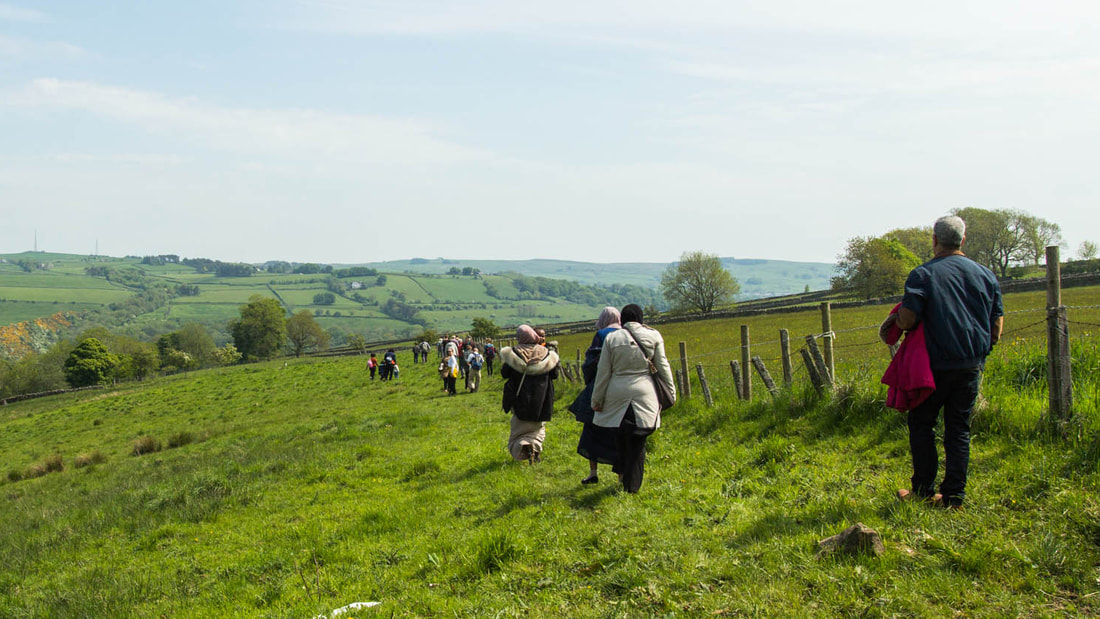
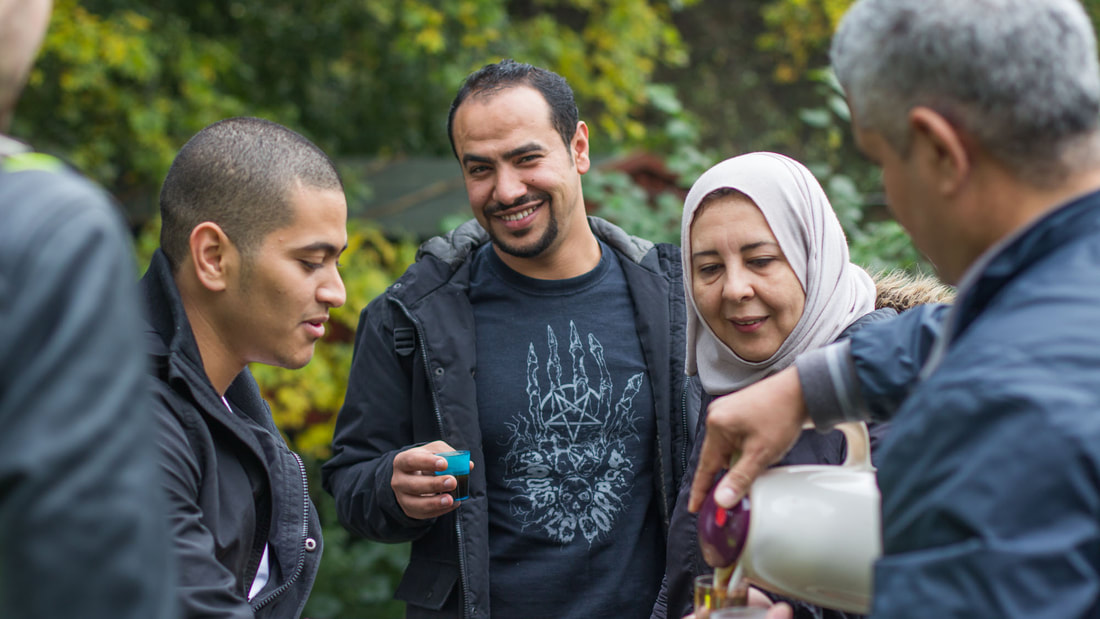
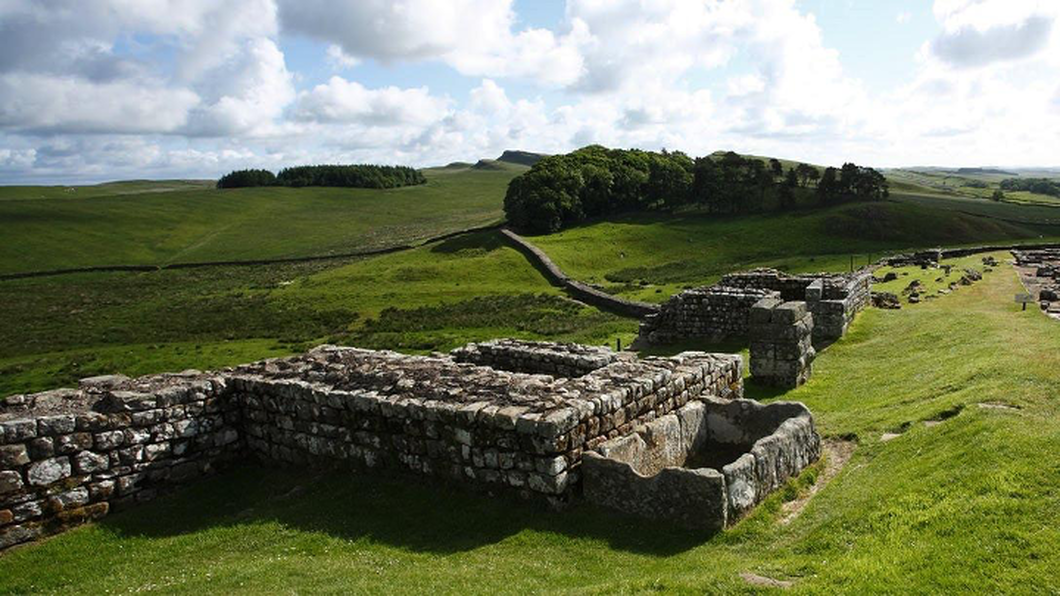
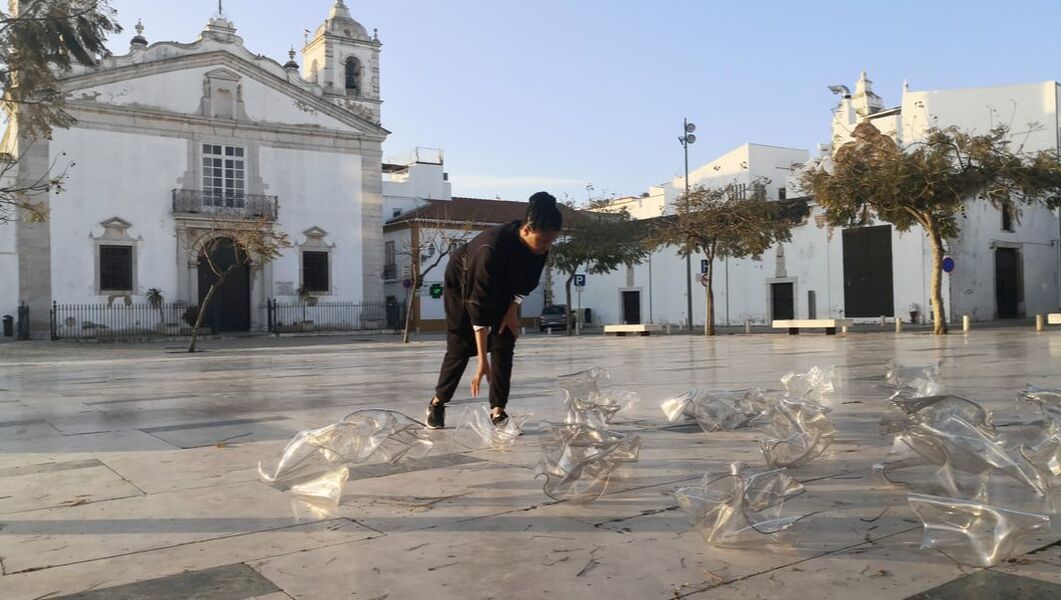
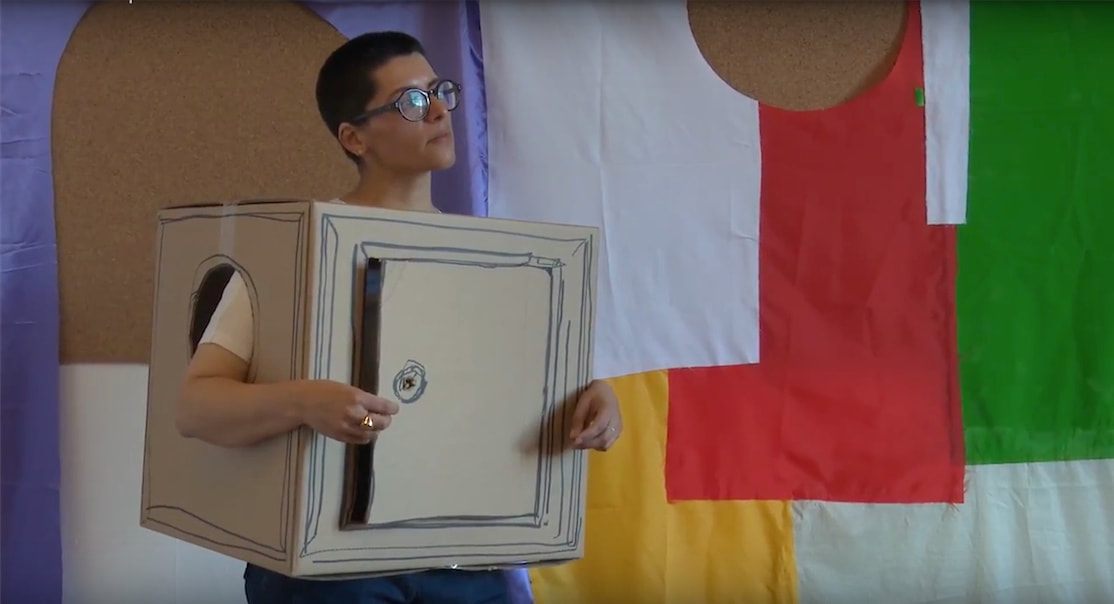
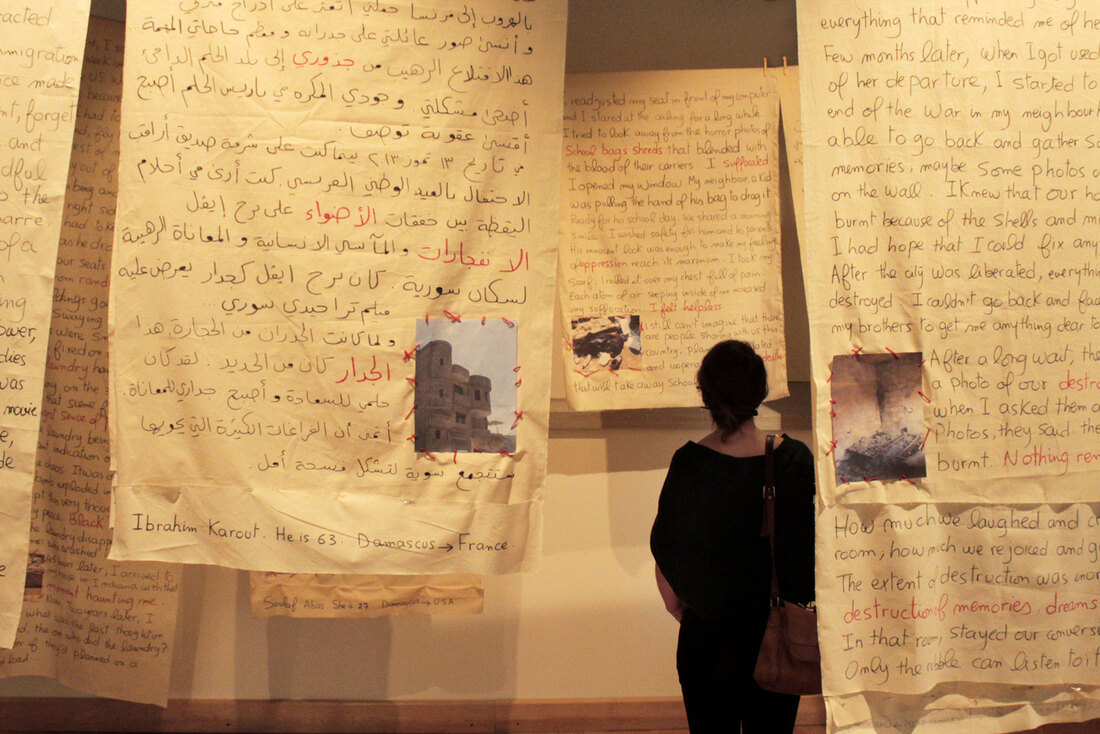
 RSS Feed
RSS Feed